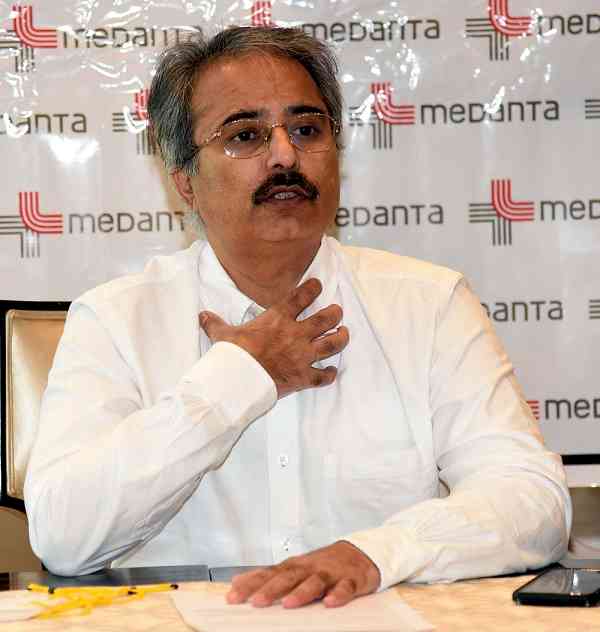Valvular heart disease is the number 3 cause of death: Study
The study has been done by eminent cardiologist Dr. Rajneesh Kapoor who is a Punjab Rattan awardee and presently Vice Chairman in the department of Interventional Cardiology at Medanta Hospital

Amritsar: Sudden cardiac death is defined as natural death due to cardiac causes, heralded by abrupt loss of consciousness within one hour of the onset of symptoms. In patients with aortic stenosis, which is narrowing of the aortic valve, the incidence of sudden death was noted up to 37%, revealed a meta-analysis study by eminent cardiologist Dr. Rajneesh Kapoor who is a Punjab Rattan awardee and presently Vice Chairman in the department of Interventional Cardiology at Medanta Hospital.
Addressing a press conference at Amritsar on Friday, Dr Kapoor while sharing the details of study said that valvular heart disease is the number 3 cause of death from heart disease in India. According to data from our transcatheter aortic valve replacement (TAVR) registry, 70% of patients with aortic stenosis disease were from the age group of less than 60 years and 20-30% of patients were less than 50 years old.
He further informed that the function of heart valves is to maintain the blood flow in a proper direction. If these valves become defective it leads to abnormal blood flow causing conditions such as brain stroke, dangerously low heartbeat, decreased heart functioning, enlargement of heart, conduction abnormalities, heart attack- all of them may cause heart failure that is life-threatening.
In the meta-analysis, from 7 big studies and 4000 patients, it was seen that in patients with symptoms of aortic stenosis the prevalence of sudden death was as high as 37% whereas in patients with no symptoms it was around 1%.
Dr. Kapoor further informed that timely treatment of aortic stenosis can help prevent the risk of sudden death by as much as 95%. Previously surgical aortic valve replacement (SAVR) was the mainstream treatment but now Transcatheter aortic valve replacement is the preferred choice, especially in the elderly population.
This is because it saves patients from open heart surgery and its complications such as post-treatment infection risk, long time hospital stay, and post-operation temporary disability. TAVR is compulsorily indicated in patients who are unfit for surgery and is proven for safety, even in 85 years plus population group, he opined.
The heart patients must not ignore signs of heart valve disease which are mostly- breathlessness, chest pain, faster heartbeat, dizziness, difficulty in walking even small distances, swollen ankles, sleep problems. Timely treatment can save lives, said Dr Kapoor.
We have on record a 98% success rate & 100% valve deployment through the TAVR procedure. We have also seen 280% less risk of deaths from heart disease in patients treated for aortic stenosis when compared to patients who are left untreated, he added.


 cityairnews
cityairnews 










